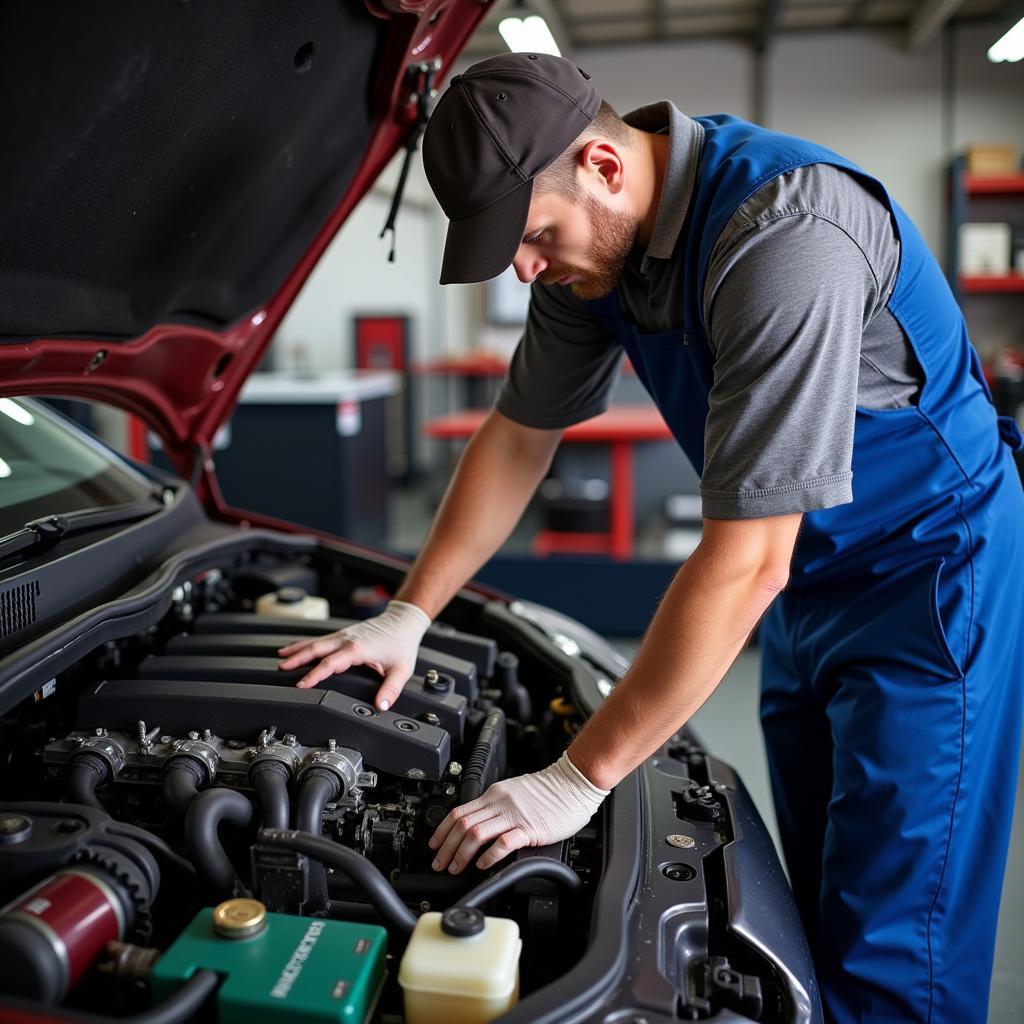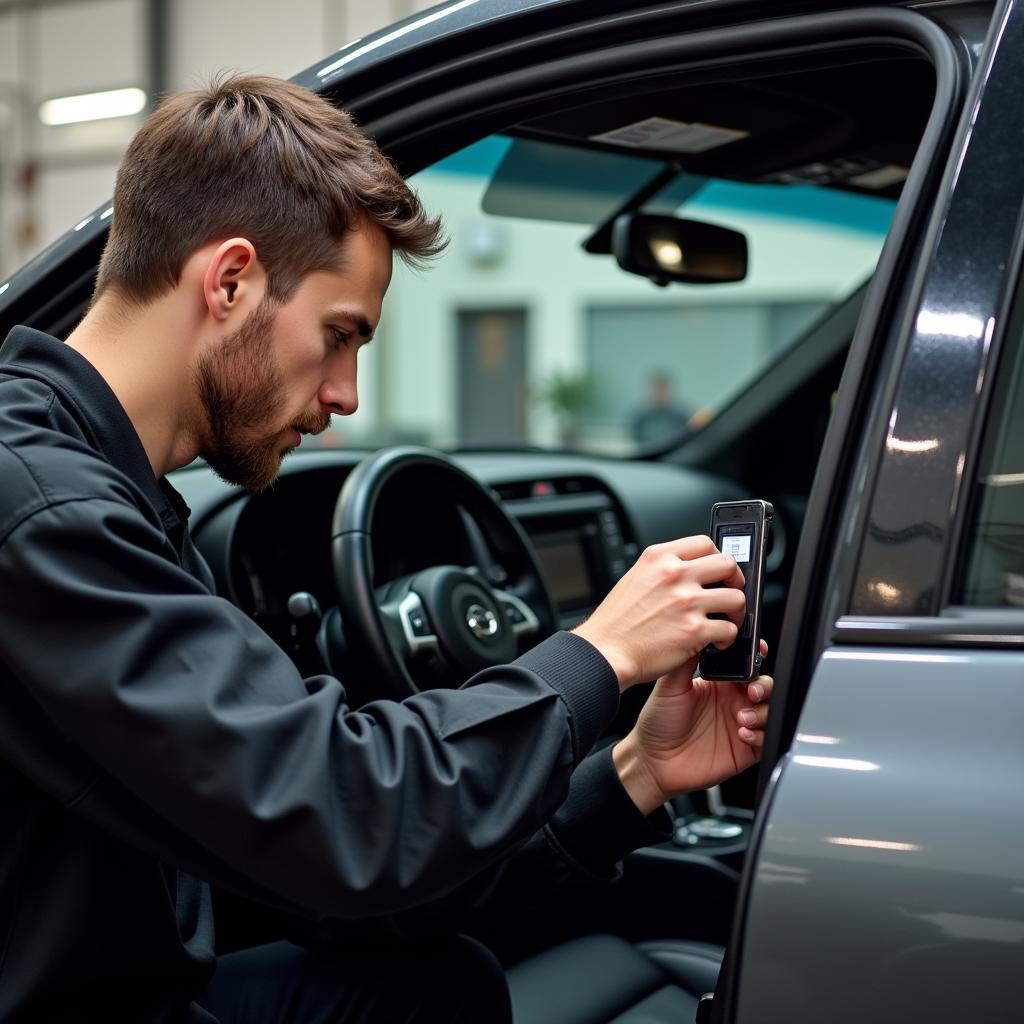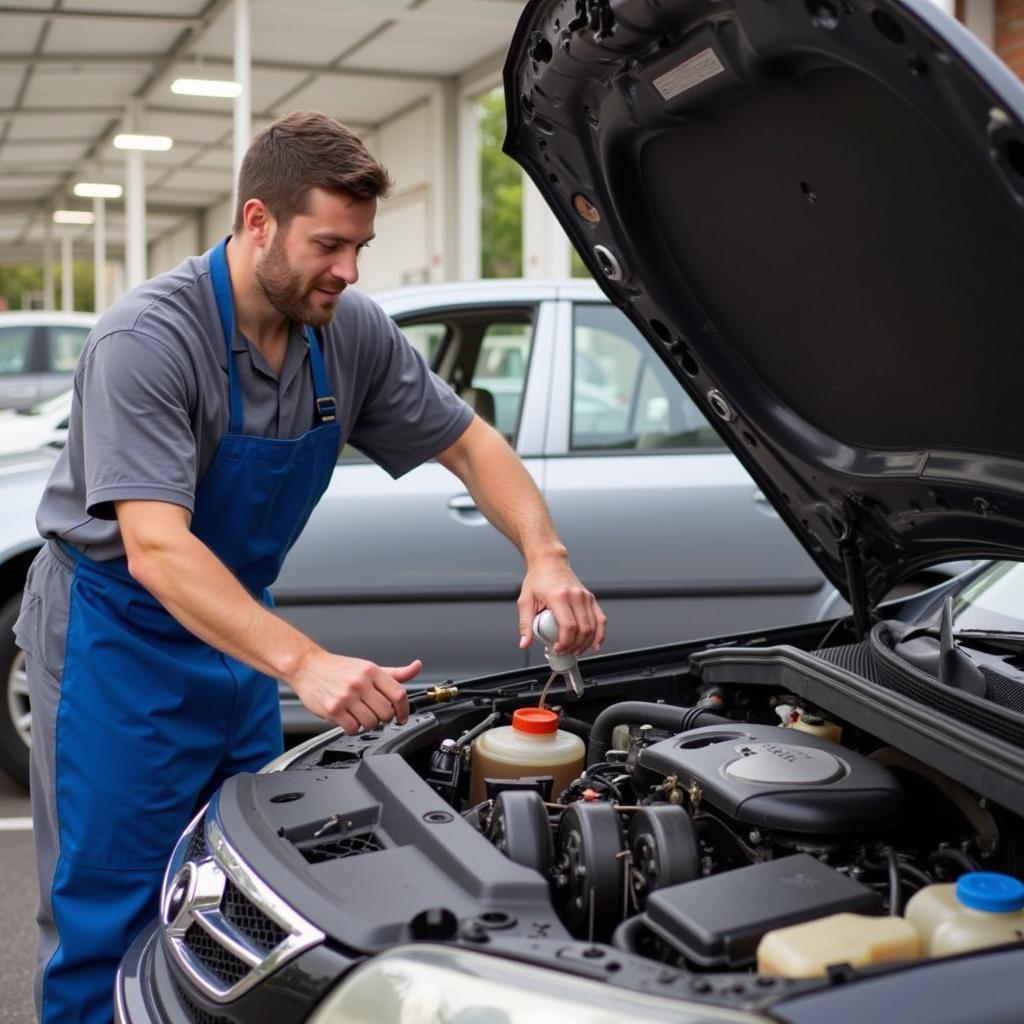Is it cheaper to fix your old car or buy a newer one? This age-old question plagues car owners facing costly repairs. There’s no one-size-fits-all answer, but this guide will provide you with the knowledge to make an informed decision.
Factors Influencing the Decision
Several factors determine whether fixing your old car is more economical than buying a newer model. The most crucial include the age and condition of your vehicle, the cost of repairs, the price of new or used vehicles, and your budget. Let’s delve deeper into each of these aspects.
Age and Condition of Your Vehicle
The older your car, the more likely it is to require frequent and potentially expensive repairs. Wear and tear take their toll, and components begin to fail. A car with a history of major repairs might be a money pit, even if the current issue seems minor. Like how to fix a beater car, knowing how to assess the overall condition of your vehicle is key.
Cost of Repairs vs. Price of Newer Cars
Obtain multiple repair quotes from reputable mechanics to accurately assess the cost of fixing your car. Compare this cost with the price of a newer car that meets your needs. Factor in the potential for future repairs on your old car. Remember, a newer car often comes with a warranty, offering some protection against unexpected repair bills. The current market prices heavily influence this calculation, especially when considering fixing car vs buying new stats.
Your Budget and Financial Situation
Your budget is a significant factor in this decision. Can you afford the upfront cost of a new or used car? Or would financing be necessary? Consider the monthly payments, insurance costs, and potential maintenance expenses associated with a newer vehicle. Sometimes, fixing a less expensive car might be the better option, particularly when considering models like those mentioned in cars least expensive to fix.
Is it cheaper to fix an old car or buy a new one if the brakes need repair?
The answer depends on the extent of the brake repair needed. If it’s just pads and rotors, it’s usually cheaper to repair. However, if the entire brake system requires an overhaul, the cost could be substantial. For specific brake repair costs, see how much to fix the car brakes.
When to Fix Your Old Car
Fixing your old car might be the better option if the repair cost is significantly lower than the price of a newer vehicle. It’s also a good choice if your car is relatively reliable and you’re comfortable with its quirks. Sometimes, sentimental value also plays a role.
When to Buy a Newer Car
Consider buying a newer car if your current vehicle requires constant repairs, lacks essential safety features, or no longer meets your needs. A newer car often provides better fuel efficiency, advanced technology, and peace of mind. Similar to considerations for are volvos expensive cars to fix, understanding the long-term maintenance costs of your current and prospective vehicles is essential.
Making the Right Decision for You
“Ultimately, the decision of whether to fix your old car or buy a newer one is a personal one. Consider your individual circumstances, needs, and budget,” says John Davis, Senior Automotive Engineer at Autotippro.
 Mechanic Inspecting Car Engine for Repair
Mechanic Inspecting Car Engine for Repair
Conclusion
Choosing between repairing an old car and buying a newer one is a significant decision. Weigh the factors discussed in this guide, including the cost of repairs, the price of a new car, and your budget. Remember, a thorough assessment of your current vehicle’s condition is crucial. For further assistance, contact AutoTipPro at +1 (641) 206-8880 or visit our office at 500 N St Mary’s St, San Antonio, TX 78205, United States. We’re here to help you make the best decision for your automotive needs.






Leave a Reply